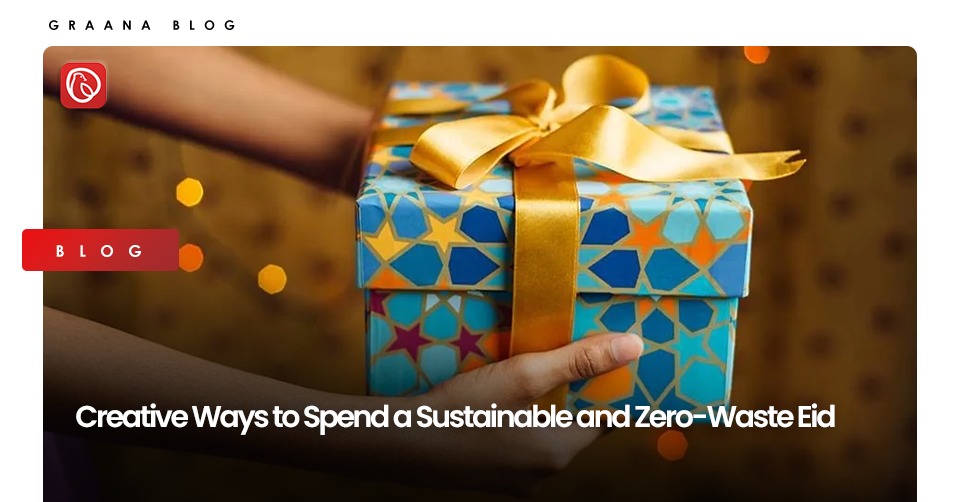Close your eyes and imagine this! You are standing on a beach with deep blue crystal clear water. You feel the sea breeze on your face and hope to see a mesmerising view when you open your eyes. To your dismay, you are standing on a heap of waste.
The coastline is polluted and all you see is trash on the shores. This is exactly the nightmare that world leaders want to avoid. According to World Bank researchers, the world is producing 10 times more waste than it did a century ago. Much of that ends up in the ocean and landfills.
In today’s world, the concept of sustainability has become increasingly important, and people are becoming more conscious of their impact on the environment.
To help minimise the disastrous effects of waste production, every individual needs to consciously make an effort to protect mother nature. A zero-waste lifestyle can be just the answer! It is effective and cheap!
It is crucial to adopt sustainable practices in all aspects of our lives, including during festivals and celebrations.
In this blog, we will explore some ways to live sustainably during festivals, specifically focusing on Eid, and how we can make a positive impact on the environment while still enjoying the festivities.
What is the Zero-Waste Lifestyle?
Zero waste refers to the process of managing and designing in such a way as to consciously eliminate the volume of waste products produced during the disposal process.
The zero-waste lifestyle essentially means that a person adopts a lifestyle where the amount one consumes is minimised to allow for minimal disposal. This kind of lifestyle is the best possible way to live one’s life.
Why Minimise Waste?
We live in the world of social media where pretty pictures and bandwagoning lure a person to adopt a disposable lifestyle.
Most people do not think twice before buying a new product. Social networking pages like Instagram have created a demand for trending products.
But why should we really hold back?
The answer is simple!
The more we buy products, the more waste is created which ultimately has to be disposed of. They end up in landfills, incinerators or the ocean.
Subsequently, more pollution is created with toxic materials polluting the air, land and water. This makes the adoption of a zero-waste lifestyle a sustainable mode of living not only for ourselves but also for future generations.
Ways to Spend a Sustainable and Zero-Waste Eid
Thrift
The fashion industry is moving at the speed of light. Every other day a new collection is dropped.
Fashion bloggers and social media are creating this demand to stay on top of the latest fashion trends, especially during holidays such as Eid.
As a result, lifestyle changes are witnessed among the population. In 2015, a Barnardo’s study concluded that an average woman considers a garment old if she has worn it seven times. Not surprisingly, the industry responds to these trends and produces new collections which also translates into more waste.
For example, in 2018, Zara – the largest fashion brand – produced 450 million items which is around 1.23 million items per day. Most of these end up in landfills, creating pollution.
To combat this problem, thrifting or buying second-hand clothing should be encouraged on a national and international level to convince the masses to change their buying patterns.
Not only is it environmentally friendly, but it is also pocket-friendly and results in huge savings. So, this Eid, you can reuse an older outfit and style it in different ways to help save some cash and the environment.
Compost
Contents of one in four grocery bags in the United States are tossed out. This adds to $1,350 in food wastage per year per family.
In 2012 alone, 36 million tonnes of food waste was generated. This extra food can either be donated to someone worthy or repurposed in the form of jams etc for later use.
Moreover, the waste which cannot be used at all can be composted to make fertiliser for the garden.
Composting is a great mechanism to reduce waste produced at home. Not only is throwing away kitchen waste harmful to the environment, but it is also costly to manage.
By composting, this menace can be avoided which will result in the production of natural fertiliser to enrich the soil.
Ditch plastic
Since the 1950s, we have created 8.3 billion tonnes of plastic waste of which the recycled, incinerated and dumped waste is 9%, 12% and 79% respectively.
It is an open secret that plastic is poison to the environment. It is non-biodegrabale and toxic. And it is also that one material that is almost impossible to completely eliminate.
But, the journey of thousand miles begins with a single step. One doesn’t have to single-handedly eliminate the entire stock of plastic from the world.
One can, in their own capacity, minimise its use as much as possible. That can be done by adopting lifestyle changes.
For example, instead of buying canned food, a switch can be made to organic food.
Similarly, instead of taking plastic shopping bags, one can switch to cloth bags. Several alternatives can help by switching to a zero-waste lifestyle.




